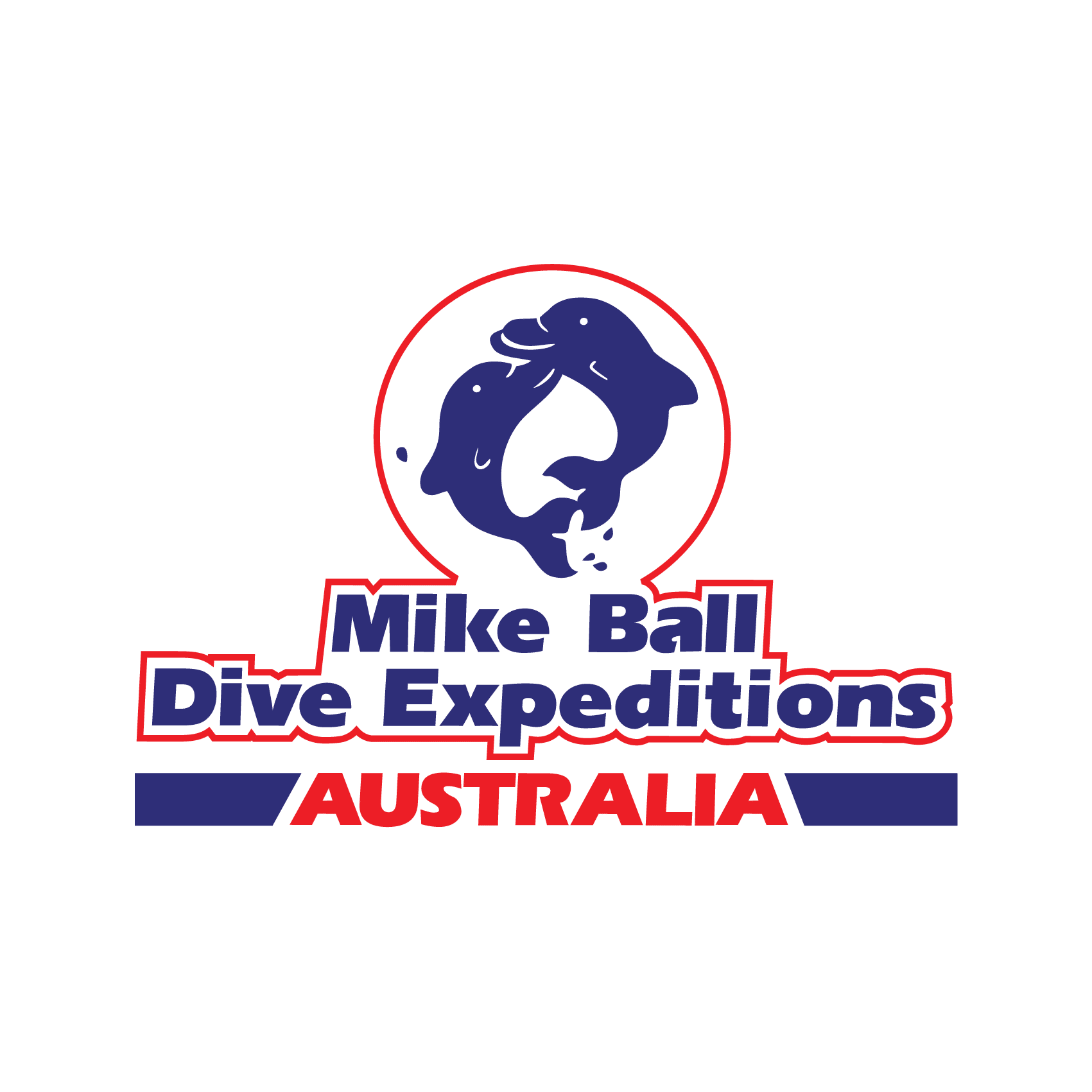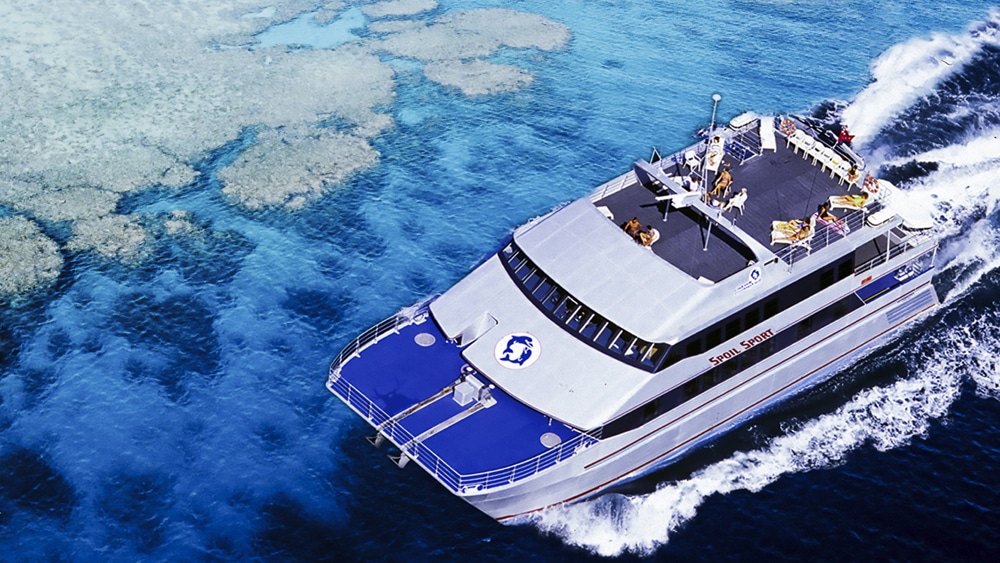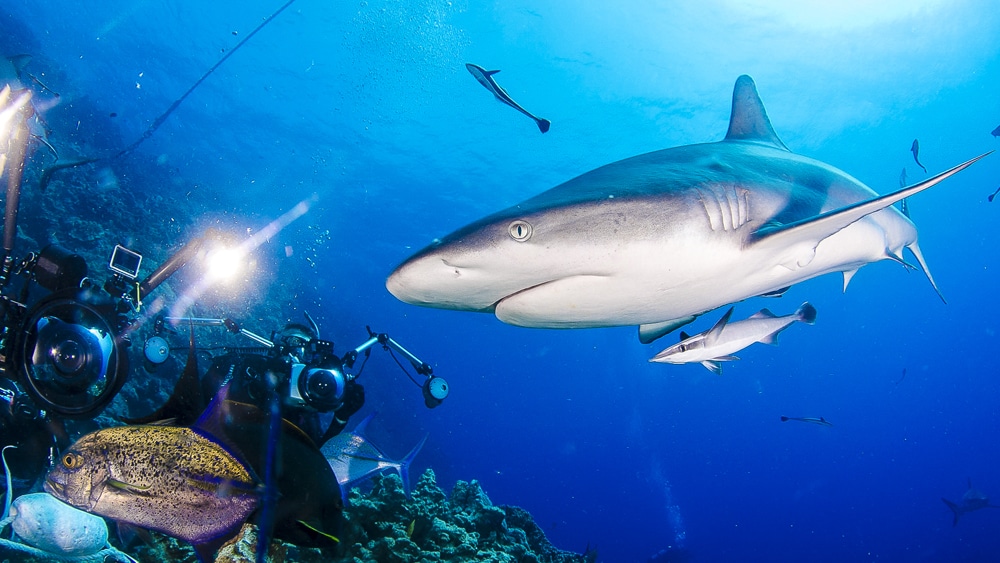News
Diving with…Craig Stephen, Mike Ball Dive Expeditions, Australia
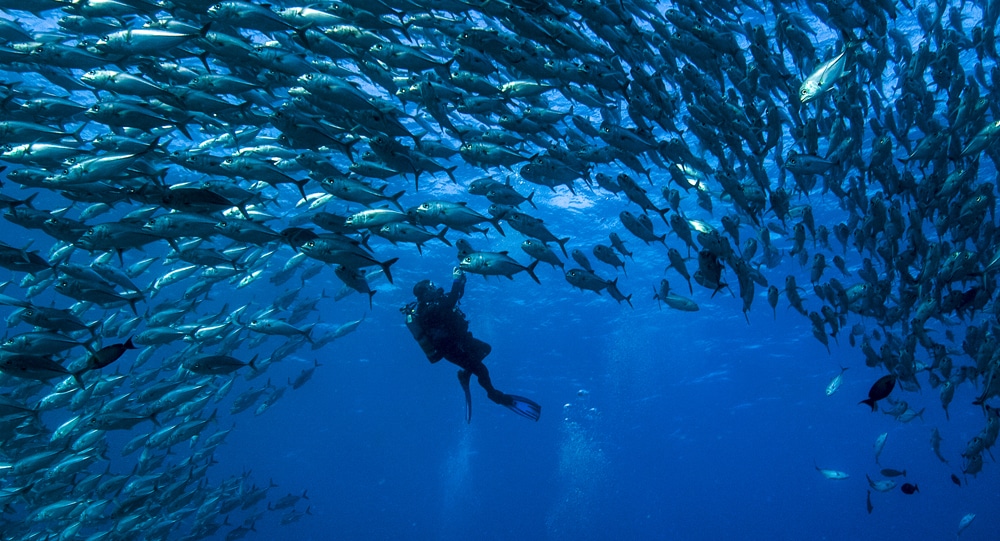
In this ongoing series, we speak to the people who run dive centres, resorts and liveaboards from around the world about their businesses and the diving they have to offer…
Craig Stephen
What is the name of your business?
Mike Ball Dive Expeditions
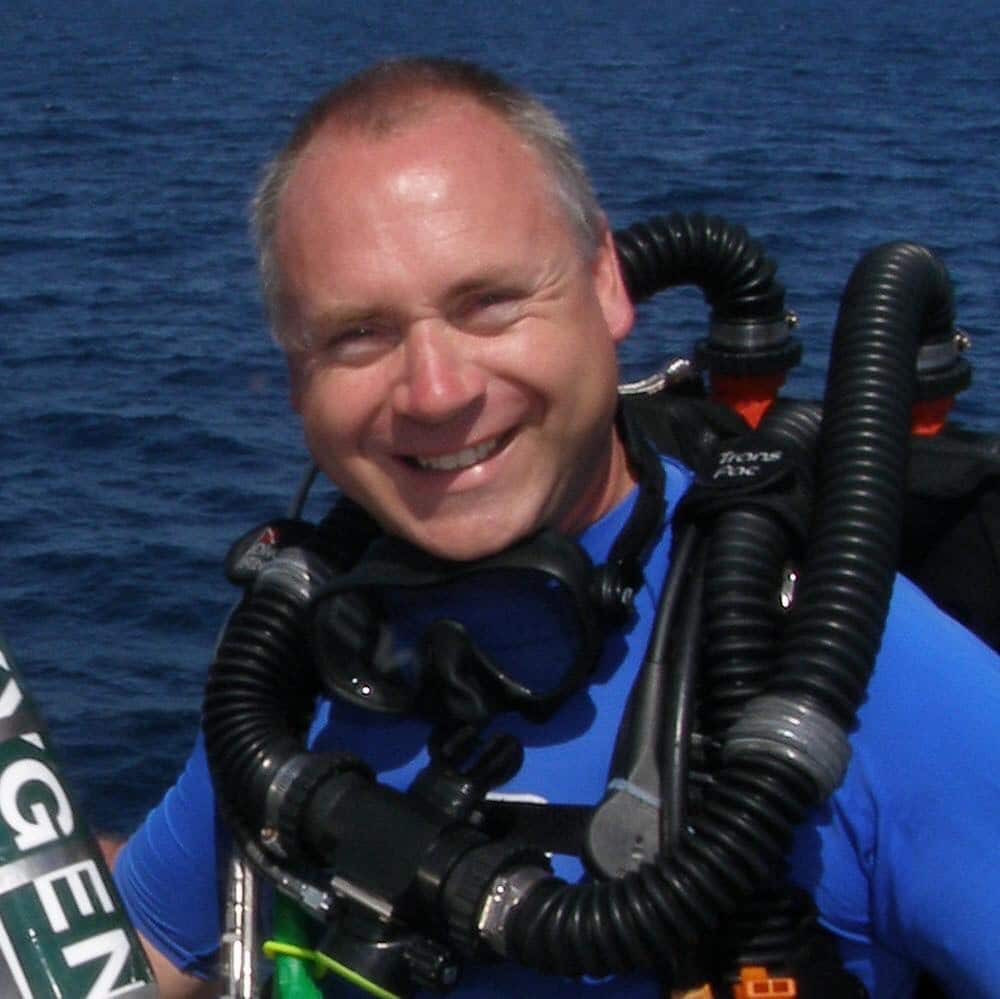 What is your role within the business?
What is your role within the business?
General Manager
How long has the business operated for?
Since 1969
How long have you dived for, and what qualification are you?
32 yrs, OWSI
What is your favorite type of diving?
With so much great diving on offer, that’s a difficult question, I do however still get very excited, dropping in on remote uncatalogued reefs, especially when the current is ripping through 🙂
If you could tell people one thing about your business (or maybe more!) to make them want to visit you what would it be?
Our vessel Spoilsport is crewed by knowledgeable seasoned and enthusiastic individuals that form a most magnificent team dynamic and ensure our passengers needs are met. Our expeditions always optimise the prevailing conditions to ensure we get the very best possible experience on each and every dive. We offer a diverse range of dive sites, dive styles and animals from large to small. People are what make the difference and whether travelling solo or accompanied, as soon as you step on board, you will feel as relaxed as in your own home.
What is your favorite dive in your location and why?
Osprey Reefs ‘North Horn’ is undoubtedly one of my favourites. Osprey is an isolated Atoll over 100 miles offshore and 70 miles beyond the GBR. Two converging walls plummeting to over 1000m (3000ft) adjoined by way of a small plateau creating a natural amphitheatre teaming with life. Grey whaler are the predominant shark species, Silvertip, Whitetip, Great and Scalloped Hammerheads are also commonly seen. It’s not just the sharks however, the western wall has a fabulous drift dive back towards the amphitheatre covered in beautiful pink soft corals and fans. Potato Cod, Morays and even the occasional Whale Shark turn up from time to time. Its got everything including that ‘Big Blue Abyss’ feeling we all love so much …. a very special place.
What types of diving are available in your location?
Beginner to advanced, Bommies or pinnacles, classic reef, drift, night, wall, reef caves & caverns; Minke Whale, Shark, Nautilus …
What do you find most rewarding about your current role?
The variety, from managing vessel slipping to hiring the next passionate reef guide and developing exciting new itineraries …
What is your favorite underwater creature?
Nigh impossible to answer, a bit like saying who your favourite child is, and that’s a definite nono, haha. Until I meet an Oceanic White Tip, I’d have to say a Silvertip, grace, beauty, unpredictable, intimidating …
Are there any exciting changes / developments coming up in the near future?
We have recently introduced NEW Far Northern Itineraries; 3 different areas on a 7 night expedition which include the Great Barrier Reef, the Coral Seas’ offshore deep water atolls and the Far Northern sector of the GBR where the deep waters well up producing vibrant reefs and exciting fish action. For 2020 we’ll be re-introducing one way travel between Cairns and Horne Island at the tip of Australia taking in the amazing Far Norther Reefs where some of the best coral reefs in the world abound with a vibrancy rarely surpassed.
As a center what is the biggest problem you face at the moment?
There are a few concerns not relative to just our center, but Coral Bleaching is an obvious one. We are very fortunate to have such a vast reef system stretching over 2600km with some 2900 individual reefs. Having a roving permit, means we can pick and choose where we dive and ‘rest sites’ as they recover. However, the trend for rising ocean temperatures and greater frequency of El Nino climatic events, allows less time for coral recovery which may ultimately see the time v recovery work against us. Shark baiting or netting near populated areas also concerns us. Too many sharks are targeted as a consequence of shark attacks, often as a knee jerk reaction by government agencies feeling they need to do something. Most educated people including the families and victims of attacks accept the risk and their consequences; it is really quite disturbing how much ignorance still exists around these most amazing (and important to the environment) animals.
Is your center involved in any environmental work?
As a company, we are Advance Eco Certified; this means that we apply best practice to manage ourselves in an environmentally sustainable way, which includes auditing by a government appointed regulator. We recycle at the end of every expedition donating the proceeds to local clean up charities; we have done away with ‘giveaway marketing’ plastic bottles and introduced metal ones, done away with glow sticks, we’ve repowered our engines both main vessel and tenders to minimise our environmental footprint and use suppliers with similar best practice and are constantly looking to improve. We have many affiliations with research groups both gov and NGO offering research space on our expeditions and are very proactive on boards and committees to secure MPA’s throughout the Great Barrier Reef and Coral Sea.
How do you see the SCUBA / Freediving / snorkeling industry overall? What changes would you make?
I’ve seen our industry go through some highs and lows, impacted by other emerging adventure sports and global events. Those of us fortunate enough to work within this industry really do appreciate just how lucky we are to earn a living so close to nature. That connection feeds our passion for conservation and encourages us to be proactive as ambassador’s for change. Gone are the days when ‘diving was dangerous and sex was safe’; there’s little machismo connected with diving these days and a lot more compassion for what we all understand, is an extremely fragile environment. The planets future is in the hands of our youth so for me, we need to energise the youth to get involved in our ‘sport’ to ensure not only its future but to create new ambassadors for environmental change.
What would you say to our visitors to promote the diving you have to offer
Our itineraries offer incredible diversity of marine life and photo opportunities from macro to wide-angle from pygmy sea horses to Minke whales and if you like sharks, well, we have lots of sharks. No two dive expeditions are ever the same for marine life encounters which is one of the reasons we have so many repeat guests. The friendliness of our crew, the chef prepared meals on a large spacious vessel, all make this big comfy girl a very pleasurable experience. Whether travelling as a group a couple or on your own, you will feel as welcome as in your own home.
Where can our visitors find out more about your business?
Website: https://www.mikeball.com/
Facebook: https://www.facebook.com/MikeBallDiveExpeditions
Instagram: https://www.instagram.com/mikeballdive/
Gear News
Introducing the TR-80, IR-50 and CS-30 Regulators from DYNAMICNORD

Whether you are a beginner or a professional diver – with the three new main regulators from DYNAMICNORD, everyone will find their favourite regulator. They all look super stylish.
Excellent performance with the TR-80
Quality and performance are the be-all and end-all for regulators. It is not for nothing that the TR stands for Tec Reg. The innovative design of the TR-80 guarantees absolute reliability – even in ice-cold waters.

Perfect breathing effort at 0.8 J/l / certified for diving in waters below 10 degrees / structural design made of solid brass for best cold protection / membrane-compensated design with dry seal of the first stage / reduced exhalation effort thanks to optimized exhalation membrane and bubble deflector / adjustable Venturi (dive/predive) and adjustment knob for individual inhalation comfort / innovative design of the front cover prevents free-flow in strong currents or when diving with scooters / design made of sandblasted brass, matt chrome finish / 2 HP and 4 LP outlets / mouthpiece made of high-quality, anti-allergic silicone for maximum comfort.


Amazing underwater adventures with the IR-50
The IR-50 is the top regulator for advanced and experienced divers. Natural breathing is the essence of this regulator.

Ideal breathing effort at 0.8 J/l /certified for diving in waters below 10 degrees / compensated membrane / adjustable venturi (dive/predive) and adjustment knob for individual inhalation comfort/ outlet valve and deflector for minimum exhalation effort and reduction of bubbles on the face / design made of sandblasted brass, matt chrome finish / 2 HP and 4 NP outlets / mouthpiece made of high-quality, anti-allergic silicone for maximum comfort.


The Workhorse – our CS-30
For diving centres and diving beginners – the workhorse stands for strong construction, reliability and robustness. Perfect for your training.

Optimal breathing effort at 0.8 J/l /recommended for diving in waters above 10 degrees / non-compensated piston / adjustable venturi (dive/predive) / outlet valve and deflector for minimum exhalation effort and reduction of bubbles on the face / design made of sandblasted brass, matt chrome finish / 1 HP and 3 NP outlets / mouthpiece made of high-quality, anti-allergic silicone for maximum comfort.


Octopus OP-30
The OP-30 is the ideal addition to all DYNAMICNORD regulators. It is identical in construction to the CS-30.

The TR-80, IR-50, CS-30 (DIN & INT) regulators and the Octopus OP-30 are available from DYNAMICNORD dealers and in the online store.
DYNAMICNORD – Your Outdoor Companion.
Marine Life & Conservation
Paul Watson Released as Denmark Blocks Japan’s Extradition Bid

Renowned anti-whaling activist Paul Watson has been released from custody in Greenland after spending five months in detention. Denmark’s Justice Ministry rejected Japan’s request for his extradition, citing insufficient guarantees that his time already served in custody would be credited against any potential sentence.
The 74-year-old Canadian-American was arrested on July 21 in Nuuk, Greenland’s capital, when his ship docked to refuel. His arrest was based on a 2012 Japanese warrant related to a 2010 encounter in Antarctic waters. Japan alleged Watson obstructed operations and caused damage to a whaling research ship during efforts to disrupt illegal whaling. Watson has consistently denied these claims, maintaining his commitment to marine conservation.
Denmark, which oversees extradition matters for Greenland, concluded that while the legal conditions for extradition were met, the lack of assurances from Japan regarding time-served credit made extradition untenable.
In a video shared by his foundation, Watson expressed gratitude and relief, saying, “After five months, it’s good to be out… and good to know they’re not sending me to Japan.” He added that the most difficult part of his time in custody was being separated from his two young sons.
Watson is a pioneering figure in marine conservation, known for founding the Captain Paul Watson Foundation in 2022 after decades of activism with the Sea Shepherd Conservation Society. His bold efforts to defend marine life have earned him widespread support, including from celebrities and conservationists. His work has also been featured in the acclaimed reality TV series Whale Wars.
Watson’s lawyer, Jonas Christoffersen, praised the decision, stating, “We are happy and relieved that Paul Watson is now free.” He added that Watson is eager to reunite with his family and continue his vital work.
The arrest occurred while Watson’s vessel, the M/Y John Paul DeJoria, was en route to the North Pacific with a team of 26 volunteers to intercept a Japanese whaling ship. His foundation described the arrest as politically motivated and emphasized that Watson’s actions were focused on ending illegal whaling practices.
Japan resumed commercial whaling in 2019 after leaving the International Whaling Commission, asserting that whale meat is a cultural tradition. Conservationists, however, continue to challenge these practices, highlighting their impact on marine ecosystems.
Despite the challenges, Watson remains steadfast in his mission to protect marine life and bring attention to whaling practices. His dedication to ocean conservation has made him a globally respected advocate for the environment.
-

 News2 months ago
News2 months agoIconic SS United States to become the World’s Largest Artificial Reef
-

 News3 months ago
News3 months agoBook Review – 52 Assignments: Underwater Photography
-

 Gear News3 months ago
Gear News3 months agoDYNAMICNORD – New German diving brand enters the British market
-

 News3 months ago
News3 months agoExploring Cenote El Pit: A Diver’s Dream
-

 Gear News3 months ago
Gear News3 months agoTry BARE drysuits (and maybe even win one!) this Friday with Sea & Sea at North West Dive Fest
-

 Marine Life & Conservation3 months ago
Marine Life & Conservation3 months agoBook Review: Coral Triangle Cameos
-

 Blogs2 months ago
Blogs2 months agoDive the Egyptian Red Sea this Autumn with Regaldive
-

 News3 months ago
News3 months ago2024 Ocean Art Underwater Photo Competition Announced


